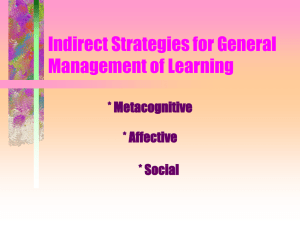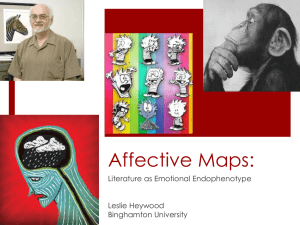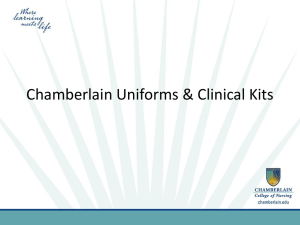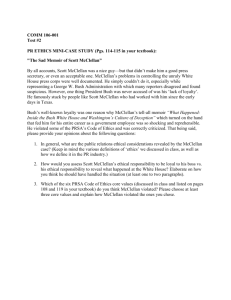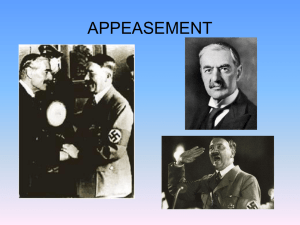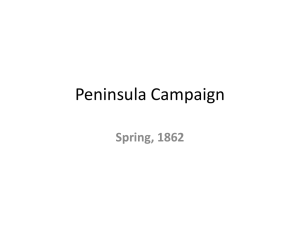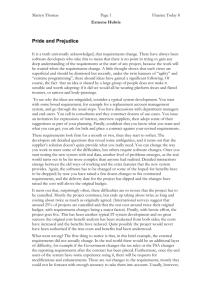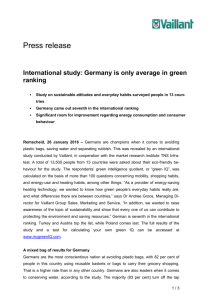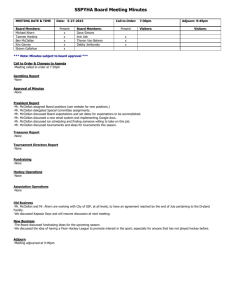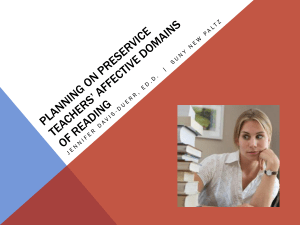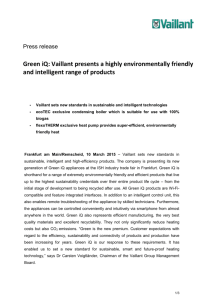The Psychopathology of Power
advertisement
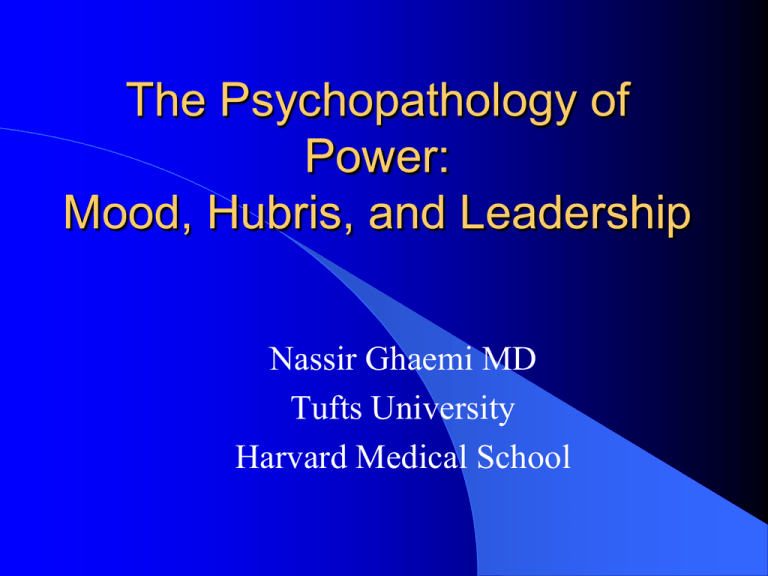
The Psychopathology of Power: Mood, Hubris, and Leadership Nassir Ghaemi MD Tufts University Harvard Medical School Honest history Positive aspects of mood illness – Depression: Realism, Empath – Mania: Creativity, Resilience – Limitations of mental health (Reverse stigma): Conformism Nassir Ghaemi, A First-Rate Madness, New York, Penguin Press, 2011 JF Galvez, SB Thommi, SN Ghaemi, J Affective Disorders, 2011, 128-185-190 New Psychohistory Scientific not speculative – Not psychoanalytic – Freud/Erikson – Documentation: 50 year rule Symptoms Genetics (Family History) Course Treatment – Severity of symptoms – Effects Depressive Realism Contingency tests – 25% green light after button press ½ both groups recognized control – 75% green light after button press 6% of normal students recognized control vs 50% of depressive group – Add money $5 per green light – normal students misinterpreted control as before – Lose $5 per green light Normal students more realistic LB Alloy, LY Abramson, Journal Exp Psychology, 1979, 108:441-485 Heads I win, Tails it’s chance 90 Yale students, 30 coin tosses – called out beforehand, asked how accurate at guessing and whether could improve with practice Descending outcomes group – told repeatedly early that they were correct Ascending outcomes group – told early that they were incorrect and then more correct Truth group: told the truth Descending group was less realistic (Leston Havens) EJ Langer and J Roth, J Personality Social Psychology, 1975, 32: 951-955 SE Taylor, DA Armor, J Personality 1996, 64:873-898; RA Cummins, H Nistico, J Happiness Studies, 2002, 3:37-69 Positive illusion Breast cancer – “a mildly disturbing disregard for the truth” – Correlated with better clinician-judged psychological adjustment Skew of happiness – 0-100 scale (16 studies of life satisfaction) – Average score 75, range 70-80 – 90% above score of 50 – most everyone feels happier than average (hence no such thing as average) Empathy Biology – Oxytocin – Mirror neurons Insula – 10% of brain Psychology – Cognitive, affective, sensory, motor (nonverbal) Depression – depressed group vs normal controls, correlation with severity – Affective, not just cognitive JF Galvez, SB Thommi, SN Ghaemi, J Affective Disorders, 2011, 128-185-190 Mental Health Roy Grinker: Homoclites – N=343, George Williams College, N=75 selected, 2 year examination – 85% lacked even the mildest mental abnormality – “Upright young men” – Mediocrity? Health: Norm + normal versus ideal RR Grinker et al, Arch Gen Psych, 1962, 6:405-453 Muscular Christianity – – – – George Brush is my name, America’s my nation Ludington’s my dwelling place And Heaven’s my destination Being normal: Homoclites Mental Health George Vaillant – Well-adjusted personality (work and love) – ML King David Owen – Hubris Syndrome GE Vaillant, Adaptation to Life, Little Brown 1977 D Owen, In sickness and in power, Praeger, 2008 D Owen, The hubris syndrome, Methuen, 2012 Great ill leaders Mania – William Sherman Not George McClellan – Ted Turner Depression – Winston Churchill Not Neville Chamberlain – Abraham Lincoln – Mahatma Gandhi – Martin Luther King Jr Healthy poor leaders Chamberlain McClellan Nuremberg Nazi trials Modern leaders? – Richard Nixon? – George W. Bush – Tony Blair George McClellan Neville Chamberlain Nuremberg Nazi leaders How to enhance realism? Oppose the culture of self-esteem – “You are not special” Teach self-doubt – The scientific attitude – Richard Feynman: Cargo cult science Teach non-conformism – Emerson’s self-reliance How to enhance empathy? Spirituality – Eastern traditions, existential equality Teaching nonviolent resistance – Not simple pacifism Oppose conformism – social doubt, related to self-doubt – Karl Jaspers
